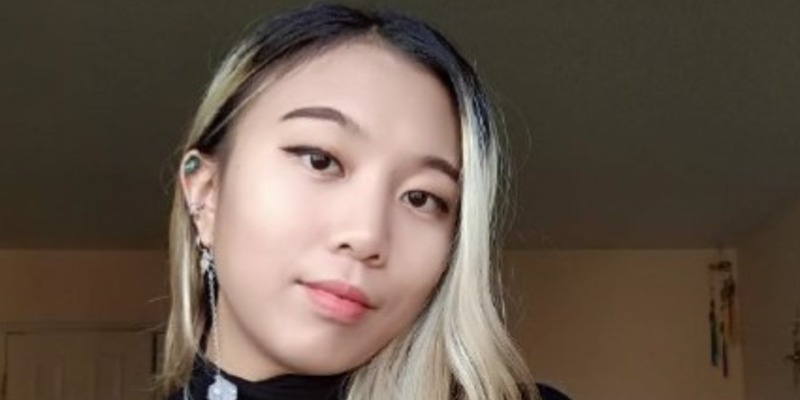Decolonising the Curriculum

Jessica Ho (BSc Environmental Science) talks about a project she is currently working on with the School of Earth and Environment to try and decolonise the curriculum and amplify Black, Indigenous, and people of colour (BIPOC) voices.
Where did your interest in this project come from?
At the start of the first semester of this academic year, I contacted the university’s Sustainability Service to express my interest in volunteering. As someone who wants to pursue a career in some form of sustainability, I thought this was a good place to find volunteering opportunities.
Give us a brief explanation of what this research project is about?
I'm working on a project to decolonise and diversify the curriculum in order to amplify the voices of BIPOC authors. The project is a bit of a trial project and my task is to look at ways to decolonise the School of Earth and Environment (SOEE) curriculum.
I'm looking at as many reading lists that were available to me to get a general overview of where our literature is coming from. I think this was the most challenging part of my project. My objective was to gather as much information about the authors of each text as much as possible. Information included their upbringing, cultural background, education, ethnicity, nationality, sexual orientation and gender identity. But when it comes to Googling professors, researchers and scientists online, there’s not much information about their personal backgrounds. Most of what I found was about their publications, work, education and professional careers. And for some authors, all I could find was a name and nothing else, not even a photo.
I also decided to look at how other universities have been trying to decolonise their curriculums. For me, it was a nice surprise to see that so many universities have already begun their journey to try and decolonise their curriculums with various projects, such as establishing task forces of students to look at their reading lists, setting up workshops and inviting guest speakers, going into schools and giving talks to schoolkids about identifying racial biases in their education system, and the list goes on.
One project which stuck out to me the most was a project done by the students and staff in the Department of Animal and Plant Sciences at the University of Sheffield. They identified and criticised specific texts that instil colonialist ideas or are biased towards Western ideas. On the other hand, they also discussed BIPOC and non-male authors and the outcome of their work. They identified specific areas within the school that needed more attention because many of the ideals and perspectives are still heavily entrained in Western culture and colonialist attitudes. I’ve decided to email them to ask how they went about this project, and I’m hoping to use a similar method.
Going forward, I'm hoping to gather a list of key texts across SOEE and to research each text and the impact that text had on our current knowledge of that subject. I will also research the authors and how the political climate at the time that their publications were made impacted the response to the text.
What are you most enjoying about your research project?
Although this project was not something that I’d expected I’d be doing when I first contacted Kelly about volunteering, I’ve found myself learning a lot about how science and society reflect each other. Before, I didn’t really acknowledge the information that we absorb from school and university can be dependent on current society.
It’s easy to fall into the trap that science has nothing to do with society and politics, considering we generally trust science and don’t question it because we just assume it consists of facts that we’re told to remember by our teachers. I’ve also been listening to podcasts that highlight that much of what we know about modern science comes from huge biases towards Western ideas.
But didn’t our modern-day number system come from the ancient Arab World? And one of the earliest discoveries of magnetism come from Ancient China? All of these core concepts didn’t just come from the European continent. As a BIPOC student, I’ve learnt a lot about the academic world and how people like me can, and should, have a bigger impact with the work that we do. It’s made me feel more proud of who I am and has encouraged me to step up to face the bigger picture because we still have a very long way to go.
If you’d like to get involved with this project, please contact me at ee18jh@leeds.ac.uk or Kelly at k.h.forster@leeds.ac.uk. Not only will you be helping schools across the university acknowledge the BIPOC community, but I think it’s also a great project for personal development.
Keep up to date on the latest news
-
- Follow us on Twitter: @UoL_Sus
- Follow us on Instagram: @uol_sus
- Follow us on Facebook: @UoLSustainability
- Sign up to our Sustainability newsletter
United Nations Sustainable Development Goals
 We use the United Nations Sustainable Development Goals (SDGs) as a framework to guide our activity. Jessica's work on decolonising the curriculum is linked to all of the SDGs.
We use the United Nations Sustainable Development Goals (SDGs) as a framework to guide our activity. Jessica's work on decolonising the curriculum is linked to all of the SDGs.
Find out more about our impact on the SDGs.
